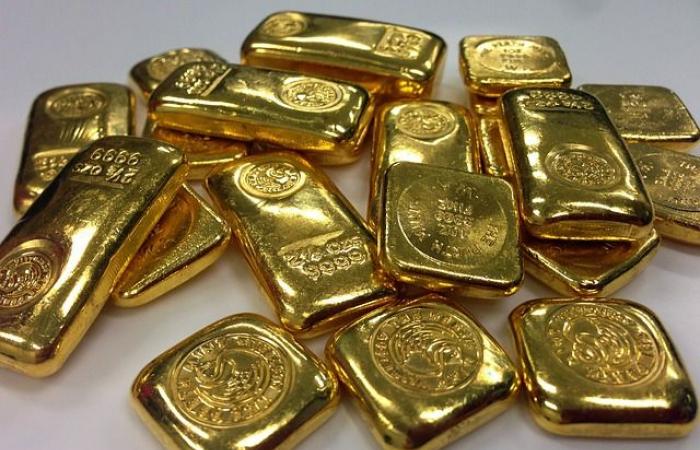The price of gold has seen an impressive surge, reaching record highs in October 2024, boosted by ongoing geopolitical tensions and the approach of the US presidential election. This increase, which places gold at the heart of investor protection strategies, is part of a dynamic that could be the best year for the precious metal since 1979.
The price of gold crossed $2,789 per ounce on October 30, marking an increase of more than 34% since the start of the year. This upward trend was confirmed over the last four trading days, with a rise from $2,715 per ounce on October 24 to $2,775 on October 29. Financial analysts, such as Charlie Bilello of Creative Planning, see this increase as a sign of a possible record year for gold, a metal that has traditionally served as a safe haven during periods of uncertainty.
Supporting geopolitical and economic factors
Recent conflicts in the Middle East, notably clashes between Iran and Israel, have reignited interest in gold as a secure asset. This rise in tensions reinforces the appeal of gold for investors seeking protection against geopolitical shocks. In addition, the uncertainties surrounding the elections in the United States – with a close contest between Donald Trump and Kamala Harris – and the early elections in Japan, where the government lost the parliamentary majority, are increasing uncertainty on the markets.
Analysts are also closely watching upcoming U.S. economic data, such as the ADP jobs report and GDP growth numbers for the third quarter. These indicators, linked to the interest rate policy of the Federal Reserve, play a major role in the evolution of gold. Historically, gold tends to follow interest rates: it becomes more attractive during periods of low rates, as investors seek alternatives to traditional financial assets.
Demand for gold, an engine of growth
Global demand for gold rose 5% in the third quarter, reaching a quarterly record in value for the first time, according to the World Gold Council. The investment market largely contributed to this performance, with increased demand for gold bars and coins. Institutional investors are turning to gold to diversify their portfolios in the face of falling interest rates and an uncertain economic environment.
The report also said that central banks, particularly those in emerging countries, continued their purchases of gold, with 186 tonnes purchased in the third quarter. This trend is in line with 2022 volumes, showing renewed confidence in the precious metal as a store of value. Goldman Sachs, in a recent report, predicts that gold could reach $2,900 per ounce by early 2025, with increased demand from central banks playing a key role in this development.
Protection against future uncertainties
Analysts at Goldman Sachs note that gold is becoming an increasingly popular hedging tool against geopolitical risks, potential trade tensions and concerns over US debt. With the upcoming US election, Western investors are re-entering the gold market to hedge against possible disruptions, particularly in a climate where central banks and governments are reviewing their economic strategies.
Gold, a symbol of stability, thus shows increased resilience in the face of current political and economic ups and downs. This spike in demand and rising prices underscores how gold remains a critical asset for investors seeking safety. In conclusion, the yellow metal stands out not only as a classic safe haven, but also as a pillar of protection strategies in the face of geopolitical tumults, offering a solid alternative to cautious investors in these uncertain times.
Photo credit: Pixabay (cc)
[cc] Breizh-info.com2024, dispatches free to copy and distribute subject to mention and link to the original source






